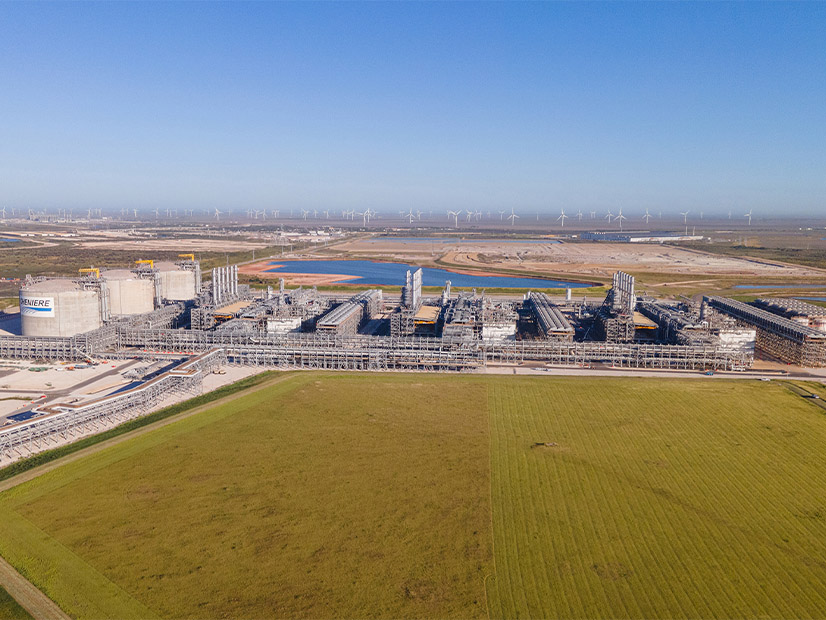FERC on March 29 came out on top of litigation over its granting previously approved natural gas projects’ requests for an extension of their deadlines to bring the facilities online (22-1233).
The Sierra Club challenged two such orders before a three-judge panel of the D.C. Circuit Court of Appeals: National Fuel Gas Supply’s Northern Access Pipeline in Pennsylvania, and New York and Cheniere’s plan to expand its Corpus Christi Liquefaction LNG facility in Texas. Public Citizen joined Sierra in opposing the extension for the LNG facility.
The New York State Department of Environmental Conservation denied National Fuel’s request for a permit, which set off years of litigation in federal court and caused it to seek two extensions from FERC. The firm won the case and filed its second request with the commission in 2022, which was granted.
Cheniere’s LNG facility ran into delays because of the economic impacts of the COVID-19 pandemic and filed with FERC to extend its in-service date from later this year to 2027. FERC granted that, agreeing that the firm could not foresee the pandemic’s impacts on the global economy when its initial plans were made.
FERC has broad discretion to grant the extensions, which is only limited by the “arbitrary and capricious” standard of the Administrative Procedure Act. It does not have to come to the best decision in such cases, with the court’s review limited to whether the commission examined the relevant considerations and articulated a satisfactory explanation for its action that includes a rational connection between the facts and its ruling.
“In considering the requests for extensions, FERC found that the project sponsors had demonstrated diligence in the continued pursuit of their projects,” the court said.
The litigation with New York and the pandemic’s impact on supply chains and the economy gave good cause for the extensions, the court said. FERC’s reasoning in both cases was consistent with its earlier decisions granting extensions.
“FERC has found a wide range of circumstances to support good cause, including legal or litigation-related barriers, as well as impacts from the COVID-19 pandemic,” the court said.
Sierra Club and Public Citizen argued that FERC’s inquiry was too lax, saying the agency rubber-stamps requests for extensions.
“Although it is true that FERC has denied very few extension requests, that is not surprising,” the court said. “Project sponsors invest significant time and resources to secure approval of their pipelines and related facilities, and they generally have economic incentives to promptly complete construction.”
Project sponsors can meet the good-cause standard by demonstrating their diligence and citing factors beyond their control that have slowed their progress, the court said. Developers who would abandon a project likely would never ask for an extension.
Sierra Club also argued that FERC should have to re-evaluate the findings underlying its original certificate order any time it considers an extension request, but the court disagreed. FERC has broad authority to take whatever actions it finds necessary to amend a certificate.
While the commission has to account for substantial or significant changes that impact a project’s approval under the National Environmental Policy Act, it is entitled to substantial deference because that call necessarily relies on FERC’s technical expertise, the court said.
New York passed its Climate Leadership and Community Protection Act while the Northern Access project was being developed; Sierra Club argued that constituted a major change. But FERC found that the law did not impact demand for the pipeline’s gas, which is largely going to serve customers in Canada, where that law has no impact. The court again sided with the commission.


